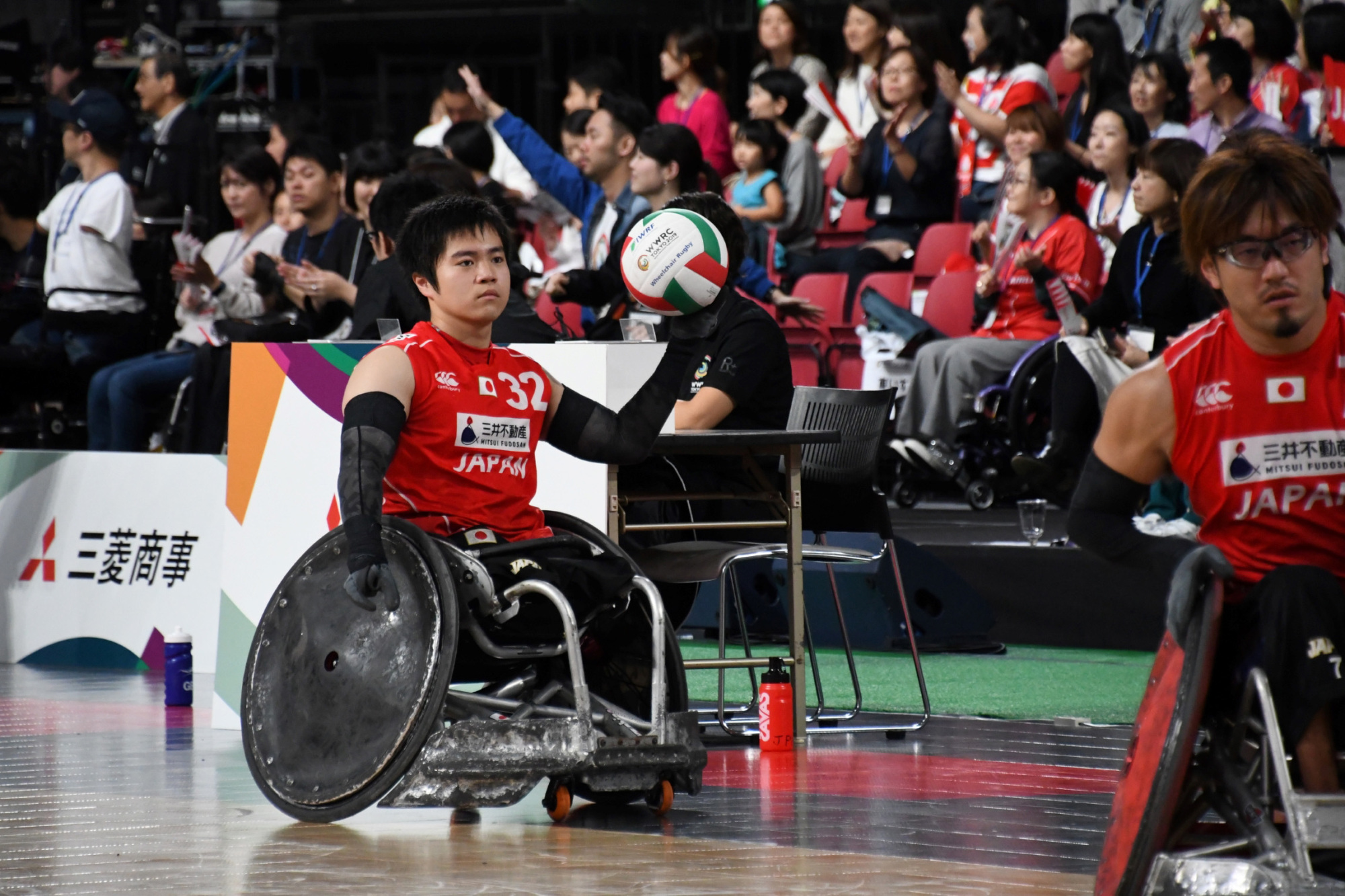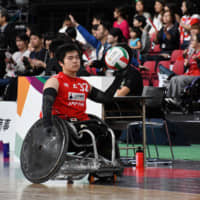At 17 years old, Katsuya Hashimoto is the youngest wheelchair rugby player on the Japanese national team. With less than 300 days until the opening ceremony of the Paralympic Games, he often pictures himself on the court at the 2020 venue, ready for his first competition as a Paralympian.
"I want to show everyone the progress I've made," he said.
In wheelchair rugby, each player is assigned points according to their physical disability. With four players on the court at all times, each team has a total of 8 points. Hashimoto has 3 points, indicating a higher level of functional mobility, making him a "high pointer" whose main role is to attack and push the ball forward. He's known for his quick ball-handling and fast decision-making skills.
In mid-October, the best teams from around the world gathered in Tokyo to compete in the World Wheelchair Rugby Challenge. Even though Hashimoto scored 18 goals against Brazil during his team's first league game, he wasn't given a chance to play past the semifinals.
From the bench, however, he carefully watched veterans such as team captain Yukinobu Ike, 39, who made heavy tackles, and Daisuke Ikezaki, 41, who chased the ball down like his life depended on it. To become a central player for the team, Hashimoto thought to himself, "I have to provide cover when my teammates are struggling."
Hashimoto was born with limb deficiencies in both of his arms and legs. He discovered wheelchair rugby thanks to a recommendation from a doctor in a sports class he was taking during his second year at junior high school in Miharu, a town in Fukushima Prefecture. He was awe-inspired by a strong tackle and realized that having only two fingers on each hand couldn't stop him from becoming a player.
A year later, he joined a club team called the Tohoku Stormers. His performance in the National Wheelchair Rugby Championships caught the attention of Kevin Orr, the head coach of the Japanese national team. Hashimoto was recruited for national team duty soon after that in 2018. He was on the team when Japan won a silver medal at the World Championships later that year.
More recently, in addition to exercise classes at the Fukushima Sports Association for the Disabled (FSAD) and practice with his club team, Hashimoto practices on his own every Tuesday. The Japanese national team also holds a training camp once every month or two.
"Athletic ability and intelligence are his greatest weapons," said Megumi Mashiko, 49, a silver medalist in wheelchair basketball and a fellow FSAD member. "He knows how to take advice and communicate his own thoughts."
Following a third place finish at the World Wheelchair Rugby Challenge, Hashimoto is convinced he has the potential to grow even further. However, to be invited to represent Japan at the Paralympics next year, he needs to make an impression at the National Championships in December and the Japan Para Championships in March.
With his sights set on the world, Hashimoto said, "Each and every day is crucial."
This section features topics and issues covered by the Fukushima Minpo, the largest newspaper in Fukushima Prefecture. The original article was published on Nov. 4.



















With your current subscription plan you can comment on stories. However, before writing your first comment, please create a display name in the Profile section of your subscriber account page.